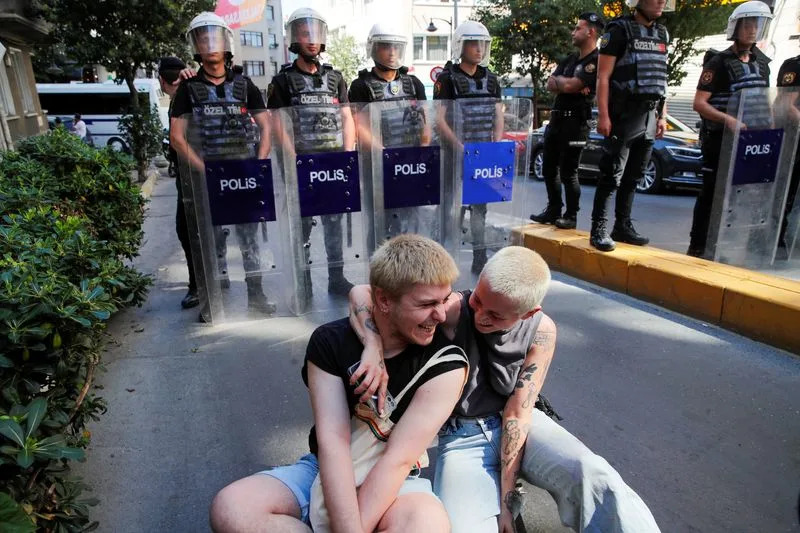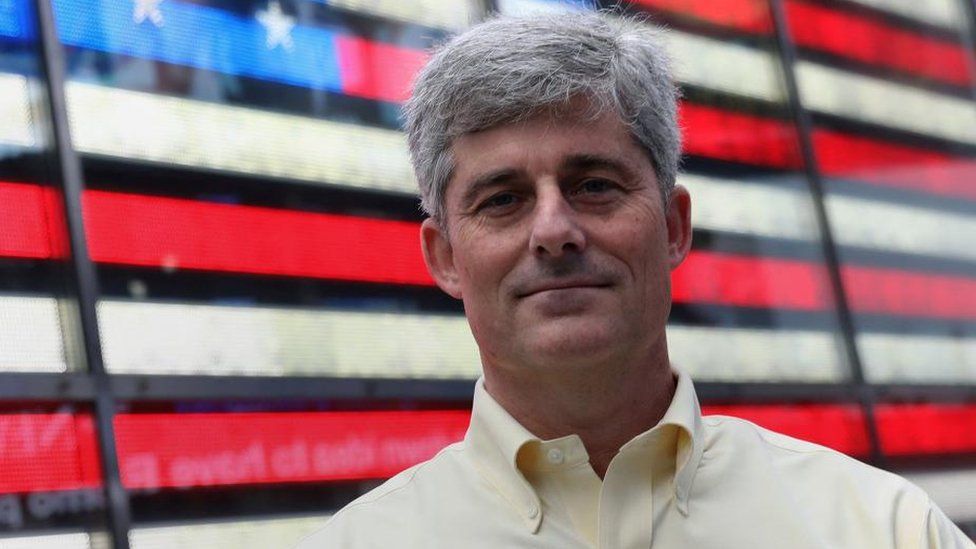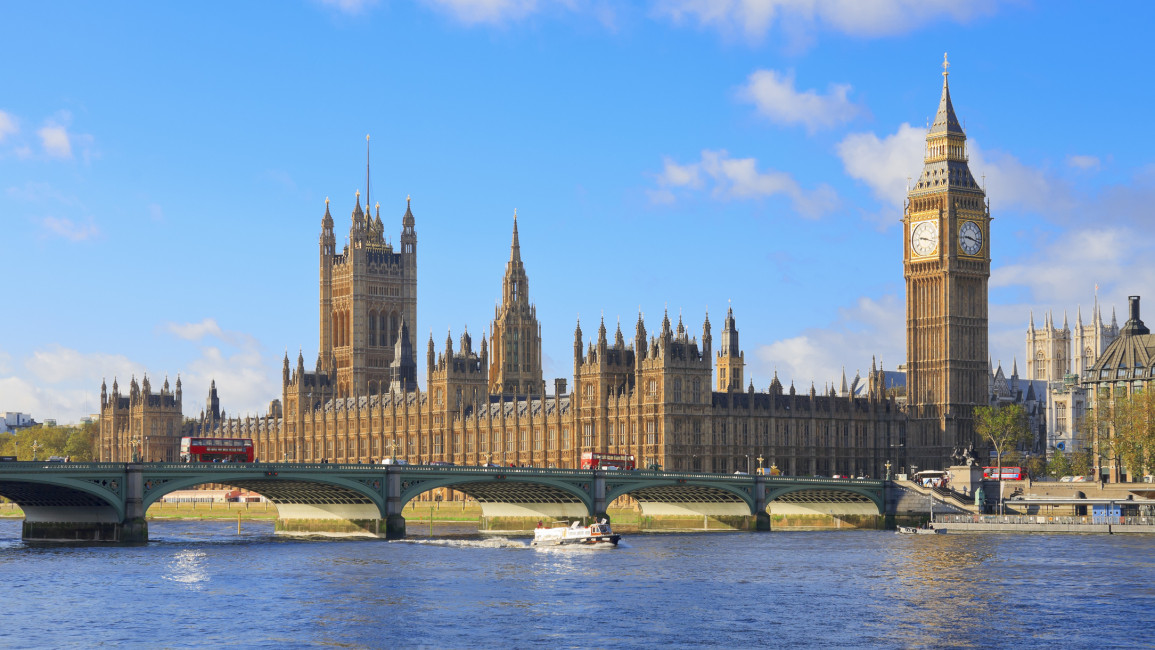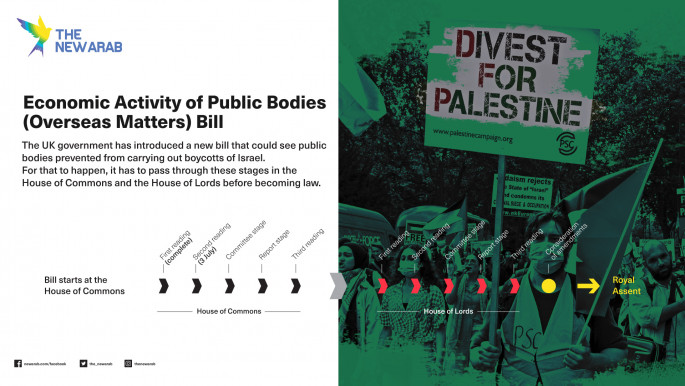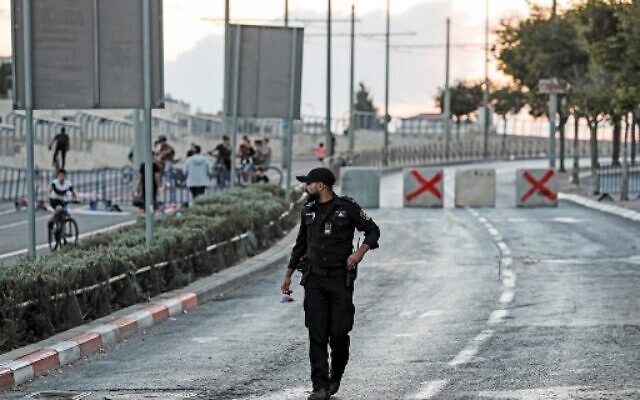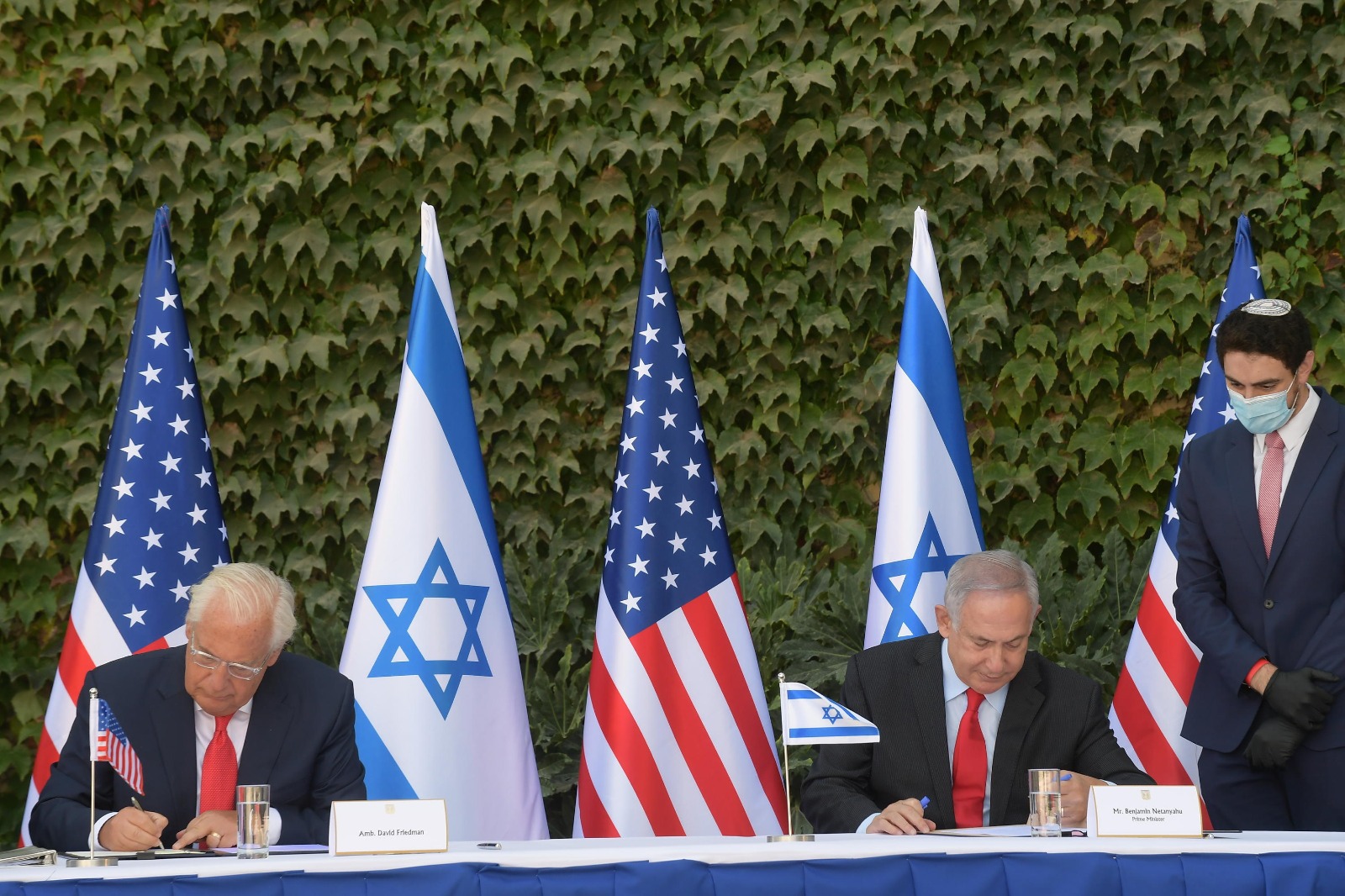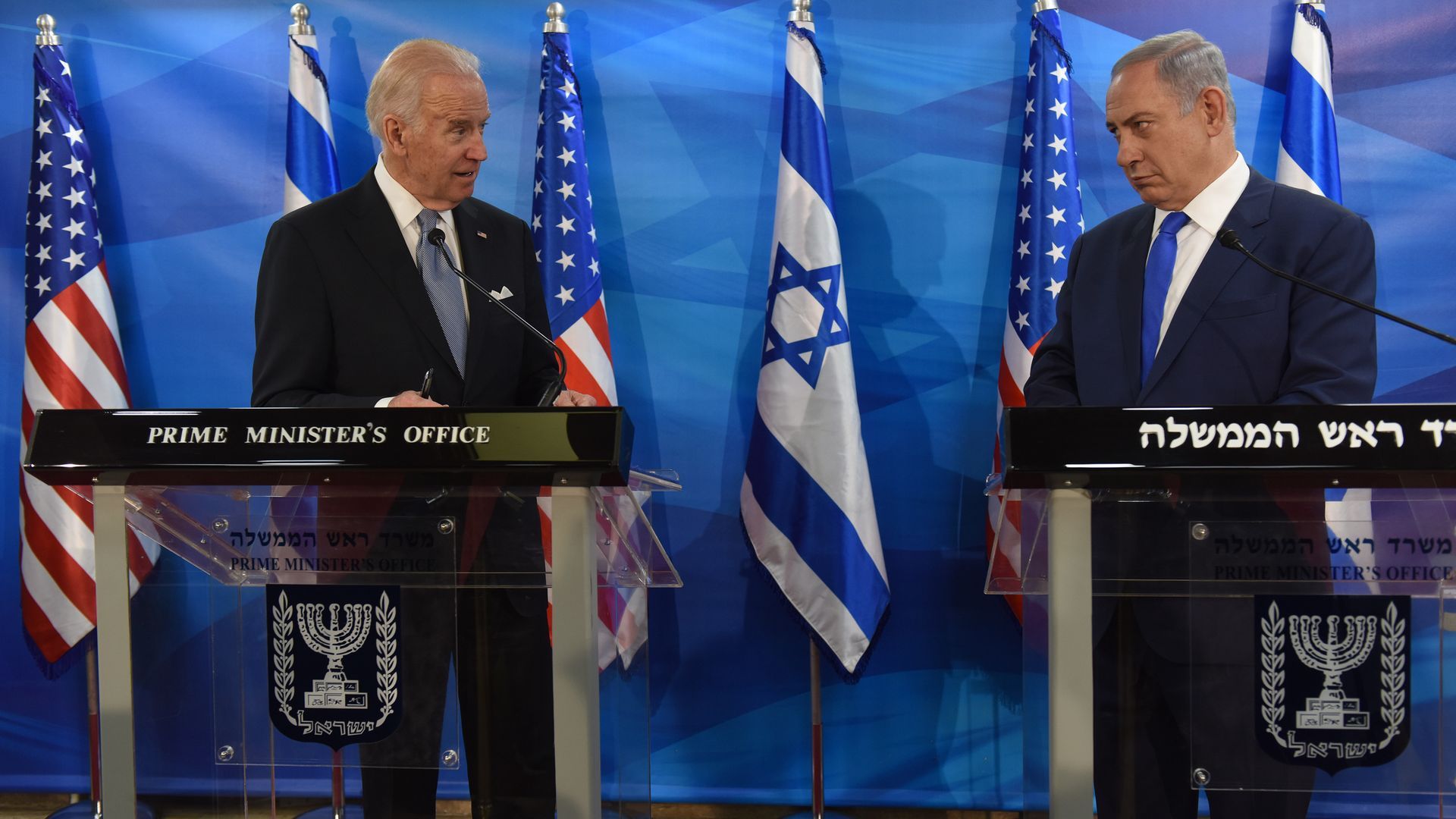
‘March for justice’: Wagner Group boss Yevgeny Prigozhin poses for a picture with a supporter in the Russian city of Rostov.
Published: June 25, 2023
Blink and you could have missed it. Within 36 hours, the challenge mounted against the Kremlin by Yevgeny Prigozhin, the leader of the mercenary private military company the Wagner Group, was over. On Friday June 23 2023, Prigozhin ordered 25,000 of his troops on to a “march for justice”, which duly set out to confront the Russian president in Moscow. The following afternoon he called it off.
At that point his troops had advanced along the M4 motorway more than halfway between Moscow and the Russian military’s southern headquarters at Rostov-on-Don. His private army was within 200km (125 miles) of the Russian capital.
The crisis was apparently averted thanks to a deal brokered by Belarusian president, Alexander Lukashenko, and confirmed by the Kremlin. But this brief episode of turmoil will have lasting repercussions for Russia and for the war in Ukraine.
The conflict between Prigozhin and the top brass of the Russian military has been going on for some time. But it escalated as the battle over Bakhmut intensified, during which Prigozhin complained more than 20,000 of his men had been killed.
Get news that’s free, independent and based on evidence.Sign up for newsletter
Back in May, Prigozhin warned of another Russian revolution. He attempted to make good on this promise four weeks later. But this was a far cry from the mass uprising of the 1917 October revolution. Instead, it was ultimately a showdown between competing factions of the Russian military-industrial complex.
Read more: Ukraine war: Yevgeny Prigozhin and the 'warrior constituency' that could threaten Putin from the right
If there is a parallel, however, it is that foreign wars were part of the background against which both the Bolshevik revolution and Prigozhin’s attempted power play occurred. And then, as now, the challenger confronted an increasingly fragile regime plagued by deep structural problems and uncertainty that any war brings.
The alleged trigger for Prigozhin’s mutiny was an apparent airstrike on his camp at the front in Ukraine by Russian forces. The airstrike itself – if indeed it happened – is an indication that the Kremlin was aware that something was afoot.
But the speed and precision with which Prigozhin moved his troops over large distances and to strategic locations – including Rostov-on-Don – indicates that this was a well-prepared operation.
It may have failed, but there will be lessons even in that for any future challenger to the Kremlin. As Lenin put it succinctly in his 1920 book Left-Wing Communism, an Infantile Disorder, without the “dress rehearsal” of 1905, the victory of the October Revolution in 1917 “would have been impossible”. That should deeply worry Putin and his inner circle.
Russia – a fragile regime exposed
More immediately, Putin has other problems to consider and take care of. The Russian president’s speech on Saturday morning was fiercely combative, vowing to crush what he called an “armed uprising”.
Within 12 hours, he had made a deal which, for now, will not see Prigozhin or any of his mercenaries punished. What’s more, Putin stood by his defence minister, Sergey Shoigu, and chief of general staff, Valery Gerasimov, throughout their rivalry with Prigozhin.
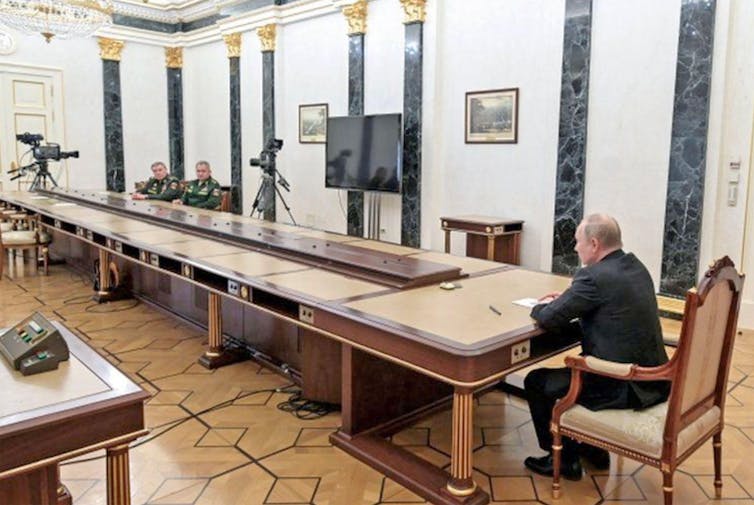
But there are now indications that both of them may be replaced. Shoigu by Aleksey Dyumin, who led the operation that resulted in the Russian annexation of Crimea in 2014 and currently serves a regional governor of Tula. And Gerasimov by Sergey Surovikin, one of his current deputies, who was briefly in charge of the war in Ukraine during the autumn and winter of 2002-23.
This does not project an image of a strong leader either at home or abroad. Moreover, the fact that Putin had to cut a deal in the first place and after Prigozhin’s mercenaries advanced so close to Moscow without facing any resistance on the ground is significant. It says something about the limitations of Russia’s capacity to respond to the crisis and deploy military and security resources beyond the war in Ukraine.
This lack of resistance to Prigozhin and the apparent popular support Wagner received in Rostov-on-Don also speaks volumes about the lack of enthusiasm for the war in Ukraine among regional elites and people outside the Kremlin bubble. It also raises questions about how ordinary people might feel about a change in regime in which the choice is between Putin and Prigozhin.
The exposure of these weaknesses must also be worrying for Russia’s few remaining allies. Turkey’s president, Recep Tayyip Erdoğan, was apparently among the first foreign leaders to speak with Putin after his televised address on Saturday morning.
The Kremlin also dispatched Russia’s deputy foreign minister, Andrey Rudenko, to Beijing for talks with China’s foreign minister, Qin Gang, to “exchange views … on China-Russia relations and international and regional issues of common concern”.
Turkey and China will have viewed the turmoil in their nuclear-armed neighbour with some concern. And both they, Kazakhstan, and other Russian neighbours in central Asia, will have deepening reservations about how reliable a partner Putin can be going forward.
An opportunity missed for Ukraine
This will probably be noted by Ukraine and its western partners. Most of Kyiv’s allies generally limited themselves to statements of concern and noted that they were monitoring events as they were unfolding. The Ukrainian president, Volodymyr Zelensky, meanwhile, highlighted the chaos in Russia and the humiliation that this meant for Putin.
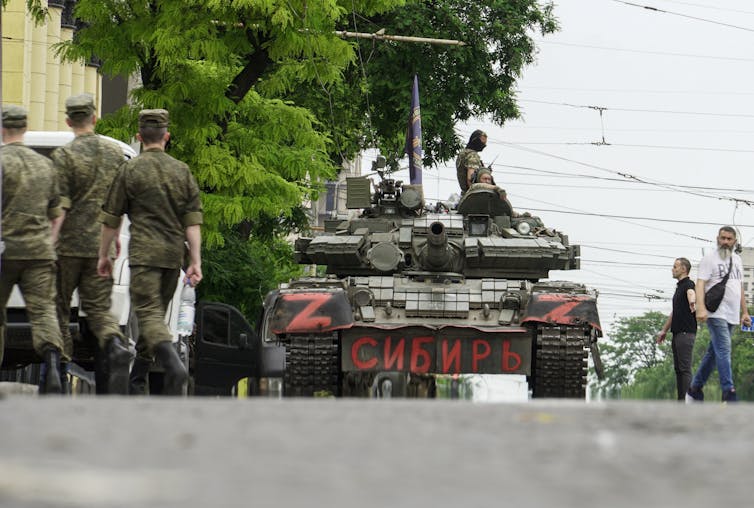
Zelensky’s senior advisor, Mykhailo Podolyak, expressed his disappointment that Prigozhin had given up so quickly. Oleksiy Danilov (the general secretary of Ukraine’s national security council) and Ukrainian historian Georgiy Kasianov both saw Prigozhin’s mutiny as another sign of the coming fragmentation of Russia.
And this is perhaps the main point from Kyiv’s perspective. Had the chaos in Russia continued long enough, it may have created a real opportunity for further advances in a counteroffensive that Zelensky himself had to admit last week is making less progress less fast than had been envisaged.
In this sense, too, Prigozhin’s failed rebellion can be seen as an important dress rehearsal that offers valuable lessons, especially for Ukraine’s western partners.
A better equipped and trained Ukrainian military could have capitalised significantly more on even this short period of disarray in Russia. More tanks and artillery, more and better air defence systems, and more fighter aircraft would not have helped either one of the Russian war criminals – Putin and Prigozhin – to defeat the other.
But they could have brought the Kremlin closer to the point of accepting the failure of its war against Ukraine.
Authors
Professor of International Security, University of Birmingham
Professor of International Relations, Jean Monnet Professor of European Security, National University Odesa Law Academy
Disclosure statement
Stefan Wolff is a past recipient of grant funding from the Natural Environment Research Council of the UK, the United States Institute of Peace, the Economic and Social Research Council of the UK, the British Academy, the NATO Science for Peace Programme, the EU Framework Programmes 6 and 7 and Horizon 2020, as well as the EU's Jean Monnet Programme. He is a Senior Research Fellow at the Foreign Policy Centre in London and Co-Coordinator of the OSCE Network of Think Tanks and Academic Institutions.
Tetyana Malyarenko receives funding from the Alexander von Humboldt Foundation, Germany

Insurrection: Wagner Group boss Yevgeny Prigozhin claims his troops have occupied Russian military headquarters in Rostov.
Published: June 22, 2023
The Conversation UK.
Even in such a fast-moving war, still some events have the ability to surprise. The decision by Wagner Group leader, Yevgeny Prigozhin, to launch an apparent coup attempt, leading his troops into Russia, where he occupied the military HQ in Rostov and was heading towards Moscow, appeared to have left the Kremlin floundering.
Then, with his troops reportedly only 200 miles from the Russian capital, Prigozhin announced they would make an about turn and return to their bases to avoid shedding Russian blood.
But the episode clearly unnerved the Russian president, Vladimir Putin, who had appeared on state TV on Saturday morning describing his former close associate’s move as “equivalent to armed mutiny”.
The Wagner Group have borne the brunt of much of the fiercest fighting, especially during the bloody battle for Bakhmut.
Read more: Ukraine war: Yevgeny Prigozhin and the 'warrior constituency' that could threaten Putin from the right
The reasons for Prigozhin’s apparent mutiny are not yet clear. But Prigozhin’s statements have explicitly been aimed against Russia’s military leadership and the ministry of defence. According to the Institute for the Study of War, the Wagner Group boss claimed that the Wagner Commanders’ Council made the decision to stop “the evil brought by the military leadership” who neglected and destroyed the lives of tens of thousands of Russian soldiers. This appears to be a direct reference to his claims during the Bakhmut campaign that his units were being deliberately starved of ammunition.
In the past few weeks ministry of defence – apparently with Putin’s backing – announced it would bring the Wagner Group and other irregular forces and militias under its direct control. The announcement was seen as an indication of Russia’s desperate need for manpower and the Kremlin’s desire to avoid full-scale mobilisation of the population.
It was also taken as evidence of the growing animosity between Prigozhin and defence minister, Sergei Shoigu. Prigozhin flatly refused to sign a contract, but the Akhmat group of Chechen forces became one of the first to sign up.
Changing the law
Deputy Defence Minister Nikolai Pankov’s announcement is significant. It wasn’t until Putin signed changes to defence regulations in November 2022 that the inclusion of “volunteer formations” was legalised for the first time.
Previously, Article 13 of the constitution of the Russian Federation had explicitly banned “the creation and activities of public associations, the goals and actions of which are aimed at creating armed formations”.
Article 71 of the constitution also states that issues of defence and security, war and peace, foreign policy,and international relations are the prerogative of the state, and therefore private companies cannot be involved.
The criminal code also identifies mercenary activity as a crime, including the “recruitment, financing or other material support of a mercenary” as well as the use or participation of mercenaries in armed conflict.
Putin’s amendments to the Law on Defence appear to change this. The amendments were implemented by Shoigu’s order of 15 February 2023, which set out the procedure for providing volunteer formations with weapons, military equipment and logistics as well as setting out conditions of service.
There have been signs of increasing prominence and acceptance of private forces within Russia. In April 2023, the deputy governor of Novosibirsk announced that employees of private military companies would be able to use the rehabilitation certificate issued to state military veterans of the Ukraine war to access a range of services.
There have also been reports in the Russian media that Wagner recruitment centres have opened in 42 cities across the country (the Wagner Group notoriously recruited heavily from Russian prisons.
There are a range of irregular forces operating in Ukraine, including Ramzan Kadyrov’s Chechen forces, the Kadyrovtsy, which officially come under the command of the Russian National Guard (Rosgvardiya), alongside private forces such as Wagner, Redut, Patriot and Potok.
These volunteer formations offer a more flexible force than conventional military forces which operate under a notoriously rigid chain of command.
They also provide a convenient “cut-out” for the Russian state: private groups and individuals bear the human, financial and political costs that would otherwise be borne by the government. And the Kremlin can fudge the list of official military casualties, otherwise a source of considerable public anxiety directed at the government and its leader.
A force at war with itself
But the increasing visibility of these groups in Ukraine and the public infighting between the ministry of defence and the groups’ leadership is a reminder of the system of patronage and fealty that characterises political culture in today’s Russia.
Turf wars are common, as rivals compete for resources, influence and, of course, the ear of Vladimir Putin himself. You only have to look at the insults hurled at each other by Prigozhin and Shoigu.

Prigozhin has been very vocal in his criticism of Shoigu and the Russian generals running the war, frequently accusing them of incompetence and corruption. The long-running acrimony between the pair reportedly stems from the defence minister cutting off Prigozhin’s access to profitable defence contracts.
This rivalry serves Putin’s interests to a certain extent. As long as any potential challengers are busy fighting each other, they pose little threat to his position. But it also hinders the country’s combat effectiveness as the fragmentation of forces makes command and control difficult, and means there is little unity of effort.
The move by the Russian defence ministry to bring “volunteer formations” under its control must be understood against this backdrop of fragmentation and in-fighting, as well as the ongoing conscription round. The current conscription window, which opened on April 1, closes on July 15, has a stated goal of recruiting 147,000 soldiers.
But Prigozhin’s revolt against Russia’s military leadership and his seeming open defiance of his formerly close ally Vladimir Putin will also have significant implications for Russia’s ability to react to Ukraine’s counteroffensive which will become clearer in the days and weeks ahead.
This article has been updated on June 25 to reflect the most recent events concerning Yevgeny Prigozhin and the Wagner Group.
Disclosure statement
Tracey German is affiliated with RUSI.
25 June 2023:
SAM GREENE
JUN 25, 2023

In what has become one of the most overused clichés, Pushkin once wrote that “a Russian rebellion is senseless and merciless”. Maybe it’s time to scratch that last part.
I’ll be honest: Even before it collapsed, Evgeny Prigozhin’s insurrection never made much sense to me. I said as much on Twitter when the story first broke, and I reiterated the point in the first interview I was asked to give on the uprising, for Al Jazeera English on the evening of Friday, 23 June:
I said it again to CNN in the early hours of Saturday, 24 June (and yes, they got my title wrong):
I then tried to reiterate broadly the same set of points — in a bit more detail — for NPR’s Weekend Edition the same day:
I’m sure I things wrong, of course, and I’m certain people will point my mistakes out to me in a kind and constructive manner. (I’ve already received one lengthy and rather amusing email calling me “a literate nincompoop” for failing to draw attention to the fact that this whole thing was orchestrated by “the Jews”.)
Moving on, though, it’s worth thinking a bit about the future, which I tried to do in a piece published Sunday at CEPA, arguing that the extension of Putin’s model of rent-based governance to a wartime economy was fraught with the danger of the kind of events we just witnessed. Thus:
Prigozhin has brought the Russian elite face to face with the uncertainty of their future. The path they’re currently on leads to more violence and incalculable risks. The obvious alternative – for Putin to try to break the autonomy of the elite altogether and rely exclusively on coercion to gain compliance – is hardly a happier prospect. Either way, business-as-usual is no longer an option.
It’s also worth pondering, though, what would have happened if Prigozhin had succeeded, and Putin had fallen. As I tried to summarize in yet another Twitter thread, the key question in any change of regime isn’t who has power, but how they got it, and what the resulting incentives are.
If Putin leaves office smoothly — ie, through a negotiated process, in which he cedes power without a fight — the key implication is that whoever takes power will retain the full apparatus of control that Putin currently enjoys. Thus, a negotiated handover of power would give Putin’s successor complete control over the media, the coercive apparatus, the Duma, etc etc. The economy is a different story, about which more in a bit. By contrast, a chaotic transfer of power — in which Putin is either forced out violently, or flees without time to negotiate — makes it less likely that the successor obtains full control of state apparatus. In a chaotic transition, the successor may have to battle and/or negotiate to obtain the loyalty of key parts of the system and would be wary of threats from within — yielding either greater autonomy (to buy people off) or a lot of repression to keep them in line.
The next question is how the successor is selected. Is there a process within the elite that builds consensus, or is there a mad dash to the Kremlin to see who gets there first? If the elite settles on a candidate, the successor will, again, likely enjoy a degree of power and influence similar to that wielded by Putin up to now. He would in turn be expected to provide the same wealth and privilege that the elite currently enjoy, if not more. If the elite fracture or don’t have time to settle on a candidate, the successor will have either to buy the elite into the new regime, or else push them out, with unpredictable consequences. The first few weeks and months would likely be critical. Oddly, an elite split is the most likely opportunity for some kind of a democratic opening. Facing a tenuous hold on power, or hoping to challenge the initial successor, various factions may seek a claim to public legitimacy via elections. If a fractured elite turn to the public for support, the media and political party space will pluralize — though not necessarily democratize. No one would be fully in control of the process, and whoever “wins” would still be on shaky ground.
Coming back to the economy, Putin’s control relies on tacit understandings and the elite’s faith that he can provide flows of wealth and patronage. A successor would have to reestablish that faith to gain elite compliance. Until faith in the patronage power of the successor is established, expect to see elites hoard resources and hedge their bets, potentially investing in a variety of political and media projects. Again, there is an opportunity for at least limited pluralism.
What about the public? Putin’s sway is created by the consensus around millions of kitchen tables and water coolers, predicated in part on the lack of an alternative. Not supporting Putin has thus become a mark of abnormality. A successor would not immediately be so lucky. Even if there is a managed transition that maintains the monopoly on media, politics and coercion, Putin’s departure will give Russians space to disagree about politics again, with less fear of social ostracism. Thus, even an autocratic successor would need time to reestablish control over hearts and minds, again with uncertain outcomes.
The balance of probabilities is that, after a period of time, Russia will revert to a regime very much like the one it has now, even if it looks and feels different for a while. That’s because it is easier for people to reestablish old expectations than to create new ones. But probability is not inevitability, and depending on the process of departure and succession, just about anything is possible — from civil war to gradual democratization. The key is to keep an open mind as things play out.
My point in writing all of that wasn’t that I thought Prigozhin’s putsch would be successful. Rather, I wanted to try to shift attention away from the personalities and towards the more structural questions of power and politics — and because, even as Putin has survived this challenge — that doesn’t mean that he is fully in the clear.
Stay tuned.
The Wagner Rebellion: How normal Muscovites reacted as mercenaries headed towards the capital

/ bne IntelliNews
By bne IntelliNews June 25, 2023
In the sixteen months since Russia launched its full-scale invasion of Ukraine, the closest that residents of Moscow had been to danger were a series of drone strikes that resulted in superficial damage to buildings. On 24 June, as Wagner Group mercenaries made their way down the M4 motorway towards the capital, it seemed evident that this situation was about to change.
With panic beginning to set in, Moscow Mayor Sergey Sobyanin announced the implementation of anti-terrorist measures, enabling the authorities to search any building and restrict the movement of vehicles and pedestrians on streets. In the centre of Moscow security was heightened around government buildings and military facilities. The Russian Army deployed troops and equipment to the entrances of the city, where they erected roadblocks. Farther away from Moscow, roads were excavated to impede travel towards to the capital.
However, whilst the world watched, anticipating a military standoff at the edge of Moscow that could potentially result in a coup, millions of Muscovites continued with their lives. Following President Vladimir Putin's speech at 10 am, official information on state TV was scarce, thereby limiting minute-by-minute updates to only those inclined to spend their day on apps such as Telegram. While a few individuals keenly followed the news and remained home, the vast majority carried on with their day like a normal Saturday.
Being a weekend, many of the capital’s residents spent the day at their small summer home, commonly known as a "dacha," located in the countryside near the city. The potential of conflict in the capital led the city government to postpone the annual celebratory concert for high school graduates, prompting many to organise private gatherings instead. Others, apparently unaffected by the potential of a war in central Moscow, opted to go shopping, take leisurely strolls in pleasant summer weather and dine in the capital’s bars and restaurants.
On 24 June, as Wagner mercenaries were just hours away from the capital, bne IntelliNews spoke to numerous Muscovites to discover the mood of those in the Russian capital.
“I am incredibly scared,” Maria Vinogradova, a 26-year-old teacher explained. “I can’t stop looking at Telegram, waiting to see what will happen. I’ve been flicking through videos from Rostov all morning, and I even listened to some of the voice messages posted by [Wagner head Yevgeny] Prigozhin. But I can’t just pause my life to follow the news, I have a lot of things to do this weekend.”
Maria’s outlook was common in those who spoke to bne IntelliNews – fear of what will happen, but not enough to cancel the days plans.
“I’m going out tonight, the girls I was friends with in university are going to a bar together,” Marina Solovyeva, a 31-year-old accountant, explained. “The war has been going on for over a year now. There is nothing I can do about it. Of course I am scared. But I have no power, so why should I stop having fun and living my life?”
Maria wasn't the only one planning to party. Throughout the day, bars and nightclubs in Moscow were still advertising their offers, events and DJs for the night, including in the city's most luxurious and expensive area, Patriarch Ponds. Videos and images posted on Instagram from 24 June show revellers enjoying their weekend in the same way they would on any normal day – listening to loud music, enjoying an Aperol Spritz and dancing.
Others, however, were in less of a festive mood.
“I’m tired of our military failures in Ukraine, so I’m glad Prigozhin is fighting back,” 41-year-old Ruslan Lenkov said. “Of course, I don’t want even more Russians to die, but [Chief of the General Staff] Gerasimov and [Minister of Defence] Shoigu have done a terrible job. I hope Prigozhin gets to Moscow peacefully and convinces Putin that he is wrong.”
Like many other Russians, Ruslan was conscripted the army at age 18 for his compulsory military service. He hasn’t been sent to Ukraine – and has no intentions of signing up – believing that his children are a more important priority.
“I’ve been sat at my dacha all day following the news while with our [children] running around the garden. This could be the most important day in Russian history in the 21st century.”
A few hours later Prigozhin announced that he was calling it off, and would be returning to the front with his troops that had, in his words, halted “within 200 km of Moscow.” Moscow’s troops stood down, and barriers blocking entry to the city were opened up.
“Now the danger is over, I’ll be able to go out without feeling guilty and fearful,” Maria told bne IntelliNews, following up a few hours after the initial interview. “I suspect that many others in the city will be out celebrating too.”

